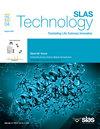WITHDRAWN: Intelligent Medical Assessment of the Impact of Anesthesia and Sedation Depth on Cognitive Function after Gynecological Laparoscopic Surgery
IF 3.7
4区 医学
Q3 BIOCHEMICAL RESEARCH METHODS
引用次数: 0
Abstract
This article has been withdrawn at the request of the author(s) and/or editor due to an error in the publishing process. The Publisher apologizes for any inconvenience this may cause. The full Elsevier Policy on Article Withdrawal can be found at https://www.elsevier.com/about/policies-and-standards/article-withdrawal.
智能医学评估麻醉和镇静深度对妇科腹腔镜手术后认知功能的影响。
近年来,对手术后认知功能障碍(POCD)的研究越来越受到重视。部分患者在妇科腹腔镜手术后可能出现精神障碍、记忆障碍等并发症,这是术后患者的认知、社会和人格问题。本文根据不同BIS (biological index)范围将妇科腹腔镜手术后患者分为三组。临床使用前,利用人工智能整理患者完整的病史记录、体格检查和分析实验室检查结果,从而确定麻醉剂量和麻醉深度,减少术中意外事故的发生。本文采用咪达唑仑、异丙酚、放射性溴化库溴铵联合全麻调整患者血药靶浓度,维持全麻深度。以POCD为切入点,通过术前术后第14天的神经心理学测量,以及MMSE (Minimal State Examination)评分,评估妇科腹腔镜手术后POCD的发生情况,并探讨不同麻醉深度对POCD的影响,为POCD的防治提供理论依据。A组患者麻醉前一天MMSE评分为23.9,B组患者麻醉前一天MMSE评分为23.8。应用智能医学研究麻醉镇静深度对妇科腹腔镜手术的影响,可以提高手术的安全性和患者的生活质量,在临床实践中具有重要的促进作用。本文研究的创新之处在于利用智能医疗技术,通过神经心理测试和MMSE评分,深入分析麻醉深度与POCD的关系。采用咪达唑仑与异丙酚联合麻醉,根据BIS值精确调整麻醉深度。本研究发现浅麻醉(低BIS值)可降低POCD的发生率,为优化麻醉策略提供理论和实践指导。
本文章由计算机程序翻译,如有差异,请以英文原文为准。
求助全文
约1分钟内获得全文
求助全文
来源期刊

SLAS Technology
Computer Science-Computer Science Applications
CiteScore
6.30
自引率
7.40%
发文量
47
审稿时长
106 days
期刊介绍:
SLAS Technology emphasizes scientific and technical advances that enable and improve life sciences research and development; drug-delivery; diagnostics; biomedical and molecular imaging; and personalized and precision medicine. This includes high-throughput and other laboratory automation technologies; micro/nanotechnologies; analytical, separation and quantitative techniques; synthetic chemistry and biology; informatics (data analysis, statistics, bio, genomic and chemoinformatics); and more.
 求助内容:
求助内容: 应助结果提醒方式:
应助结果提醒方式:


